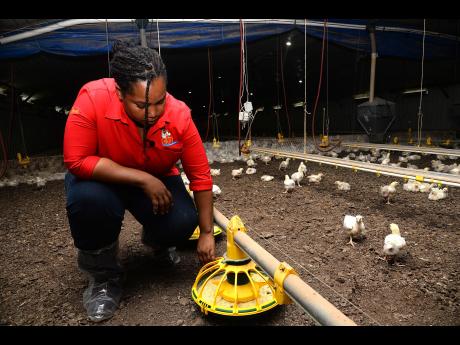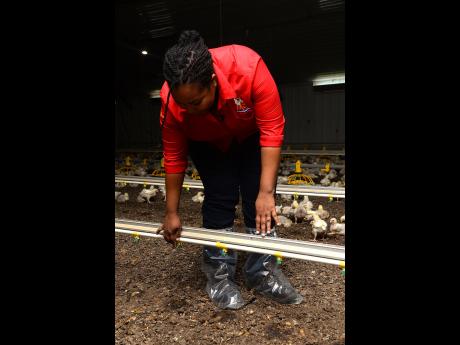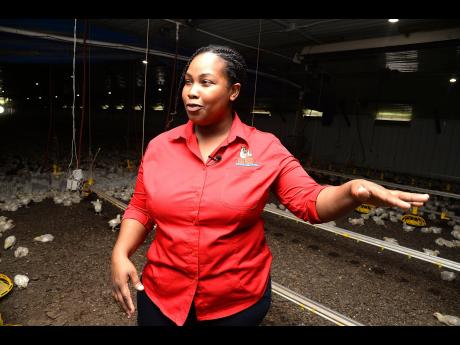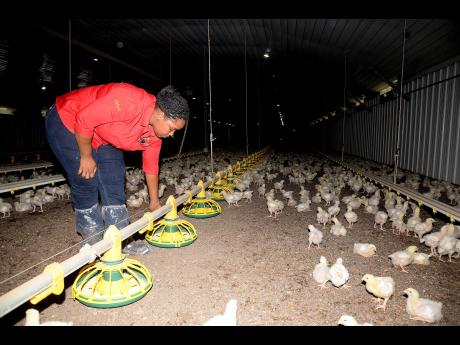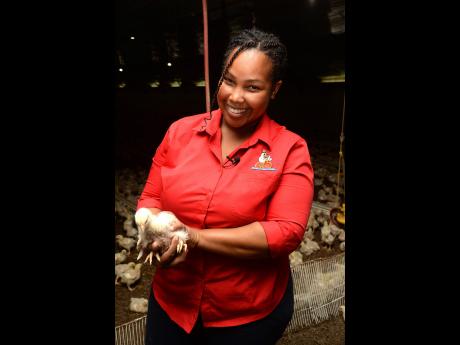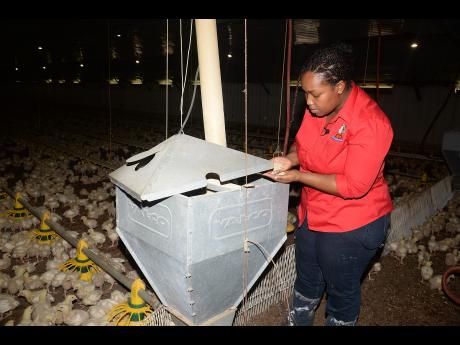Poultry Medicine Done Right With Gyles.
On the quest to make agriculture 'sexy', the Nutramix team, in collaboration with Flair, has reached out to hear the stories of women who are in unique and empowering positions within the field. This week, we introduce Dr Sydonnie Thompson-Gyles, who is possibly the most enthusiastic and cheerful poultry veterinarian on the island.
"I'd like to think I became a vet because it was my calling, this is something I always wanted to do," said Gyles with rosy cheeks and a twinkle in her eyes as she spoke about her passion to work with animals. Gyles, who is an alumnus of the College of Agriculture, Science and Education (CASE), paid homage to the skill set she obtained from the institution and admits her love for agriculture was fortified with their help. She completed her associate of science degree at CASE and then ventured into veterinary medicine a year later. She applied for the Russian scholarship at Kazan State University for veterinary medicine, where she studied for six years. While attending the university, she noted there was an extreme culture shock. Persons considered her as exotic due to the lack of people of African descent. "It was really strange, different culture and very cold," said Gyles.
FULL PLATE
Being the only poultry veterinarian in Jamaica, Gyles has a lot on her plate but does it efficiently with zeal. As a poultry veterinarian, she visits all the poultry farms across the island. "I visit the hatchery and the processing plant. I pretty much follow the birds from beginning to the end. At the hatchery, I pull blood from them, which gives me a lot of information about their health status and the status of their parents. This helps me to adjust my vaccination programme and to see if they need to be vaccinated against particular disease. From time to time I will swab their organs just to check if our environment is conducive to their development," explained Gyles, as she told Flair about her routine.
"I want to make sure whatever is happening in the field has good health effects on the birds. In the field, they are big and fluffy, but at the processing plant when the feathers are removed, that is when you really see everything that has been happening with the birds, so we can truly know their health status," she said.
The sacrifices for this career are many. She explained that it is a demanding job especially while being the mother of two toddlers ( a five and a two-year-old). "It gets a little hard to balance personal life with work life, but a balance is important to ensure I don't get burnt out. Being burnt out has negative effects on your job performance and it definitely shows," said Gyles. As a poultry veterinarian, your daily routine is pretty much up to you. There is no set structure and you have to develop your own schedule.
Of all the agricultural industries poultry is the most organized and technology is at your fingertips. "We have control boards which collect and analyzes data from equipment that interacts with the birds on a daily basis. The exposure to technology is phenomenal. You get to liaise with vaccine companies and poultry technicians from all over the world," she explained.
Gyles wants to make a special appeal to our young people. "A lot of people scuff at agriculture and the mindset back in the day is, if you are not academically inclined then you go into agriculture. That has changed. This is 2018 and agriculture is at a phenomenal place in the world right now. Take a chance it is so worth it," enthused the young veterinarian.
Anyone interested in developing skills in agriculture or want to become a vet, Gyles suggests CASE is an excellent option. "You can stay right here in Jamaica and get involved in agriculture,"
"The best thing I love about this profession is that you are giving back to your country every day. You are so involved in nation building and every single day I am contributing to the welfare of Jamaica and Jamaicans," she said.

